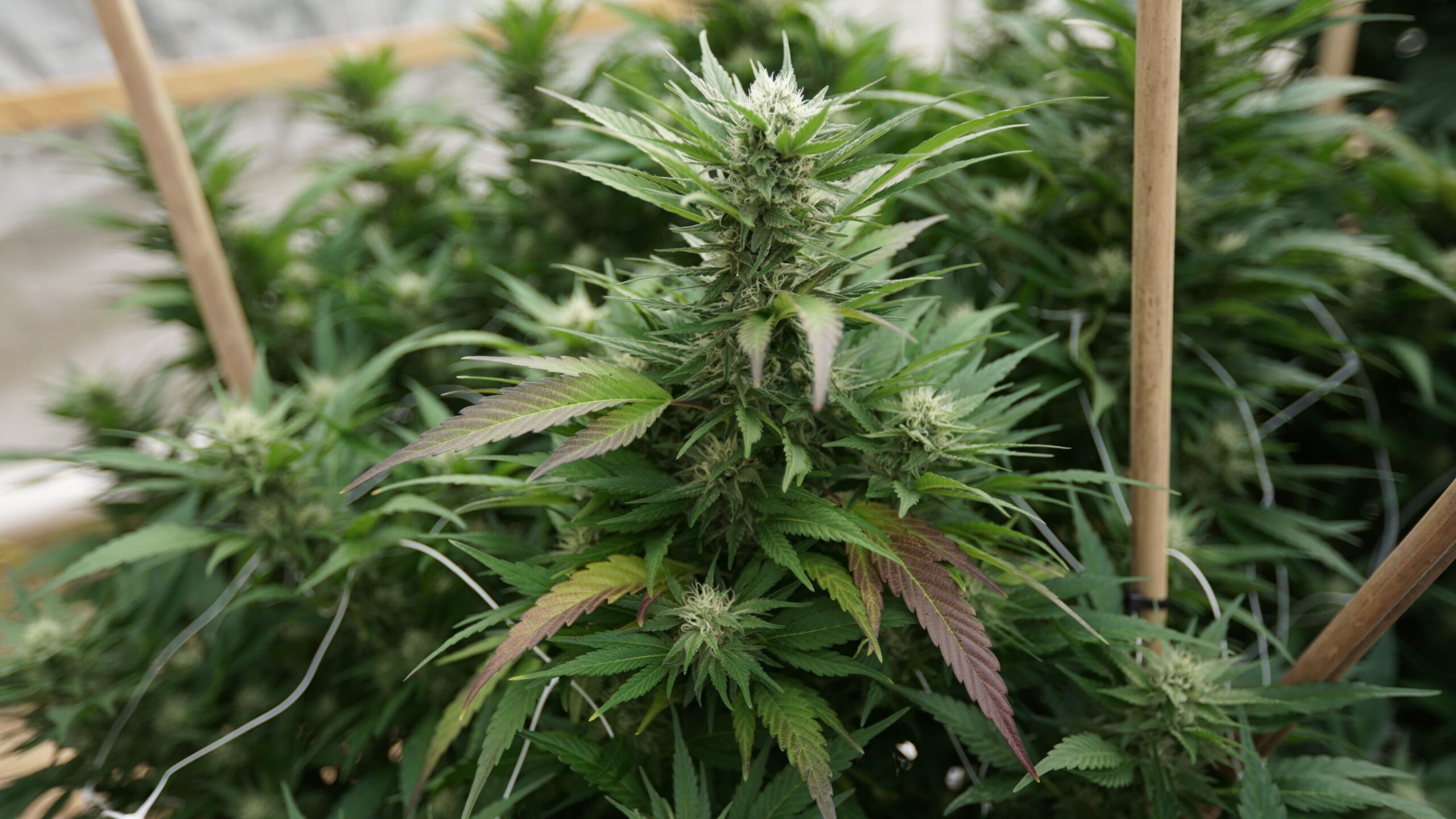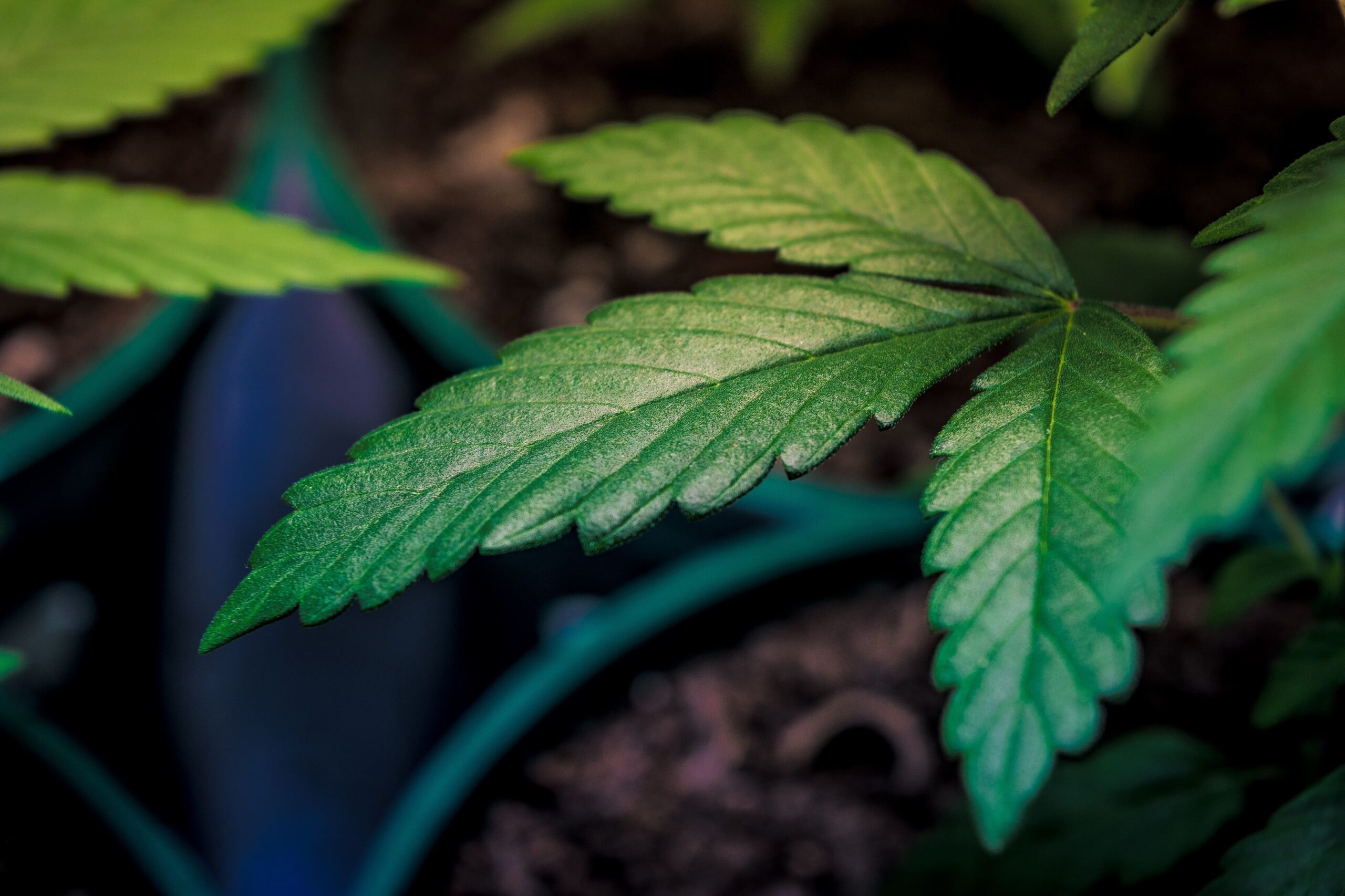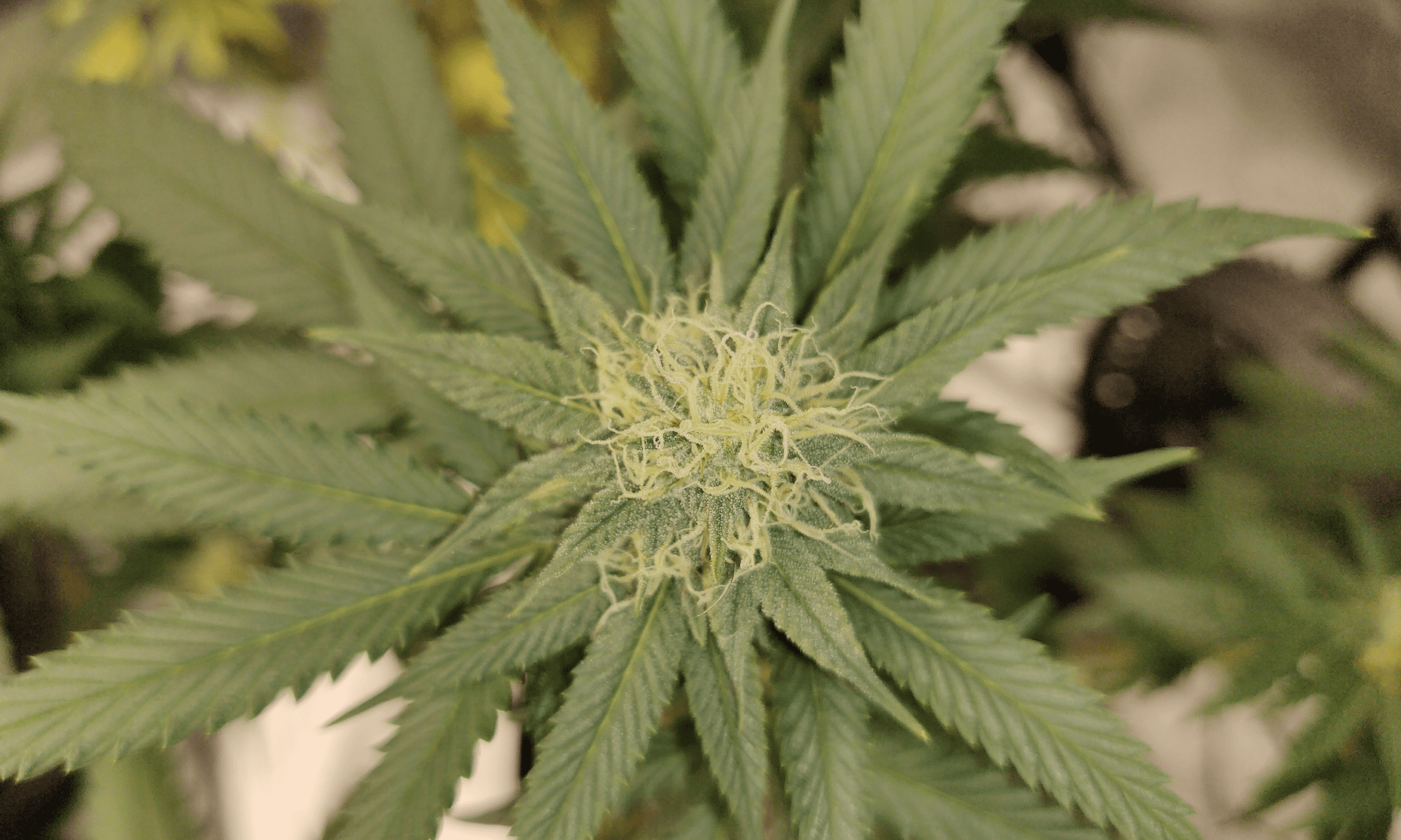featured
Nebraska Medical Marijuana Supporters Slam Restrictive Rules Proposed By Governor-Appointed Panel
Published
3 days agoon

“I feel like Nebraska just wants to make it as uncomfortable and unbearable as possible.”
By Zach Wendling, Nebraska Examiner
Green shirts filled a hearing room in Lincoln full of Nebraskans who support the legalization of medical cannabis but oppose the regulations of the product proposed by the state’s new Medical Cannabis Commission.
Thirty-two people testified against the proposed regulations Wednesday. None spoke in support. Testifiers argued the regulations would not be feasible for most people needing medical cannabis, and roughly half called out commissioners for not attending the hearing to listen to their concerns.
“I feel like Nebraska just wants to make it as uncomfortable and unbearable as possible,” said testifier Nathan Brown.
In 2024’s general election, 71 percent of Nebraska voters voted to legalize medical cannabis, and 67 percent voted to create the new regulatory commission. Since December, Nebraskans have been able to legally possess up to 5 ounces of medical cannabis, so long as they have a health care practitioner’s recommendation.
However, medical cannabis can’t yet be legally purchased in the state. Just last week, the Medical Cannabis Commission granted two of its four cultivator licenses to Nancy Laughlin-Wagner of Omaha and to Patrick Thomas of Raymond. Chief Legal Officer for Nebraska’s Department of Health and Human Services Bo Botelho said both licenses had been accepted.
In September, the commission advanced a stricter set of regulations in comparison to emergency regulations the group approved in June. Gov. Jim Pillen (R) accepted the new regulations with one revision—to limit cultivators from growing more than 1,250 flowering plants at one time.
The revised regulations would, for the first time, set extensive testing and security requirements and establish a “Recommending Health Care Practitioner Directory” for in-state physicians to recommend medical cannabis. If approved, the rules would remain in effect for up to 90 days.
Under the regulations, patients or caregivers could purchase up to 5 ounces of medical cannabis in a 30-day period, which is about 142 grams. But they could purchase no more than 5 grams of delta-9 tetrahydrocannabinol (THC) from the same dispensary within a 90-day period. Delta-9 THC is the part of cannabis most associated with a “high.”
Several testifiers said this limit was too restrictive. Testifer Shari Lawlor said a single joint usually weighs about 1 gram, so expecting people with medical needs to be limited to 5 grams of THC over 90 days is impractical.
State Sen. John Cavanaugh (D) of Omaha, who testified at the hearing, went a step further and called the limit a bold violation from the ballot language voters approved in November, which allowed possession of up to five ounces.
Testifiers largely agreed that the proposed regulations go against what voters asked for. Several argued it tells them the people tasked with drafting the regulations lacked an understanding of medical cannabis.
Crista Eggers, campaign manager for the Nebraskans for Medical Marijuana initiatives, brought a large stack of papers representing the roughly 240,000 signatures gathered between both petitions as a visual example of the level of public support for medical cannabis.
“I will guarantee you that every single one of them wished they could be here today,” she said. “You know what, they shouldn’t have to be. They did their part. Voters spoke.”
Some testifiers criticized the limits on acceptable forms of medical cannabis. The proposed regulations exclude smoking and vaping.
Edward Williams, a veteran and member of the Legal Marijuana Now Party, said smoking or vaping is the most effective method of treating him when he wakes up from nightmares due to his PTSD. The key factor is that smoking and vaping is quicker to take effect than other forms of cannabis, such as edibles.
“You can’t really wake up with nightmares or flashbacks and expect to have to wait for an hour or two for an edible to work,” Williams said.
Williams wasn’t the only veteran to testify. Several others spoke about how medical cannabis has benefitted them and said they have lost friends to suicide who didn’t have access to the same treatment.
A majority of Wednesday’s testifiers offered emotional stories about how medical cannabis can alleviate painful ailments for them or their relatives. They described medical cannabis as a safer and cheaper option than other pain relief treatments.
“Instead of needing to put my mother on morphine at the end of her life, where she then went into a coma just to control her pain, we could have had a meaningful and loving last few days had she been prescribed medical cannabis,” said testifer Kathy Jensen.
Registered Nurse Tracey Davidson, who did not testify but attended the hearing, said she was first exposed to the benefits of cannabis when her brother-in-law was diagnosed with cancer about 12 years ago. Because he lived in Colorado, he had access to medical cannabis, and she said he credited that as part of the reason he could continue working and biking until days before his death.
“I view cannabis as medicine,” Davidson said. “I’ve seen it work through my career for a lot of different situations, from pain management, to sleep, to PTSD.”
Many testifiers also criticized the three active medical cannabis commissioners for not attending the hearing, calling it “shameful” and “insulting.” The hearing was required under statute.
Some testifiers even accused members of being “bought off” by anti-marijuana politicians. At a commission meeting several weeks ago, testifier Georganna Schroeder-Stanley said she observed “indifference, boredom and even contempt” on the faces of some commissioners listening to public feedback.
Cavanaugh interviewed the appointees for the commission as part of his duties as a state senator. He said his “fears have come true,” from those interviews—that members are “pursuing a political agenda” that aligns with Pillen’s.
Chair Monica Oldenburg did not immediately respond to a request for comment.
Several other testifiers said that Nebraska is missing out on much-needed revenue. Brown argued this is silly considering how easy it is for Nebraskans to access cannabis by crossing state lines.
Brown said Nebraska would lose residents because of the government’s resistance to accepting medical cannabis. Another testifier, Dawn Weir, said she moved back to Nebraska this year because she’d heard that medical cannabis had been legalized.
The aftermath of the 2024 ballot initiatives has made some testifiers question whether they should continue voting if the state can interfere so easily. Cavanaugh pleaded with attendees to continue voting, but urged them to vote for people “who actually respect you.”
Proponents of medical cannabis have long argued the issue is nonpartisan, and several testifiers identified themselves as registered Republicans who either regret voting Republican in 2024, or are reconsidering their party affiliation.
“I don’t know how long [my Republican registration] is going to last with watching this state going so far to the other side,” said testifier John Reagan.
With the hearing concluded, the commission will decide whether to formally adopt the regulations or make changes. If finalized, the regulations would be sent to Nebraska Attorney General Mike Hilgers’s (R) office for legal review. Pillen would have the final say. Hilgers’s office did not immediately respond to a request for comment.
This story was first published by Nebraska Examiner.
Photo courtesy of Chris Wallis // Side Pocket Images.

Author: mscannabiz.com
MScannaBIZ for all you Mississippi Cannabis News and Information.
You may like
-


Alcohol companies lobby Congress on cannabis drinks (Newsletter: October 22, 2025)
-


Millennials Are Spending Big on Luxury Travel
-


Ohio Lawmakers Advance Bill To Scale Back Voter-Approved Marijuana Law And Impose Hemp Regulations
-


Data Confirms Cannabis Is Safer Than Alcohol
-


American Council of Cannabis Medicine Unveils Major Industry Initiative to Expand Medical Cannabis Access
-


Scientists Develop New Class Of CBD Using A Common Kitchen Spice—Not Cannabis
featured
Alcohol companies lobby Congress on cannabis drinks (Newsletter: October 22, 2025)
Published
1 hour agoon
October 22, 2025
NJ governor candidates on marijuana; OH cannabis & hemp bill advances; PA cannabis regulatory vote; Non-cannabis CBD developed from kitchen spice
Subscribe to receive Marijuana Moment’s newsletter in your inbox every weekday morning. It’s the best way to make sure you know which cannabis stories are shaping the day.
Your support makes Marijuana Moment possible…
Free to read (but not free to produce)! We’re proud of our newsletter and the reporting we publish at Marijuana Moment, and we’re happy to provide it for free. But it takes a lot of work and resources to make this happen.
If you value Marijuana Moment, invest in our success on Patreon so we can expand our coverage and more readers can benefit: https://www.patreon.com/marijuanamoment
/ TOP THINGS TO KNOW
New House and Senate lobbying reports show that alcohol companies and industry groups are stepping up lobbying efforts around hemp drinks—also detailing how major businesses like DoorDash and PayPal are engaged in cannabis-related congressional advocacy.
As New Jersey voters prepare to elect a new governor, the candidates have contrasting marijuana views—with Republican Jack Ciattarelli calling cannabis a “gateway drug” and Democrat Mikie Sherrill voting for and sponsoring reform legislation in Congress.
The Ohio House Judiciary Committee approved a bill to revise the state’s voter-approved marijuana legalization law by removing some protections for consumers and to restrict intoxicating hemp products.
The Pennsylvania Senate Law & Justice Committee approved a bill to create a Cannabis Control Board to oversee the existing medical marijuana program and intoxicating hemp products—and which could also regulate the adult-use market if broader legalization is enacted.
Researchers behind a new federally funded study developed a new class of CBD-like compounds using the common kitchen spice caraway seeds—not cannabis—that “not only prevented seizures and reduced seizure-related deaths but also promoted healthier brain cell development.”
The Rhode Island Cannabis Control Commission approved a timeline for issuing new marijuana dispensary licenses, including to social equity applicants and worker-owned cooperatives.
/ FEDERAL
The White House has paused the nomination process for President Donald Trump’s nomination to be a federal judge in Florida amid his involvement in an ongoing investigation into the alleged misuse of Medicaid funds to campaign against a marijuana legalization initiative on the state’s 2024 ballot.
The U.S. Senate Caucus on International Narcotics Control held a hearing on Hezbollah’s ties to drug trafficking.
Sen. Rand Paul (R-KY) said that the Trump administration’s military strikes against alleged drug boats “go against all our tradition.”
House Armed Services Committee Ranking Member Adam Smith (D-WA) is calling for a hearing on the Trump administration’s military attacks on suspected drug boats.
/ STATES
Rhode Island Gov. Dan McKee (D) announced that the state’s top cannabis regulator is concluding her tenure.
A caller to Nebraska Gov. Jim Pillen’s (R) radio show was hung up on in the middle of making a point about medical cannabis legislation.
Ohio’s Senate president and House minority leader discussed the prospects for passing hemp legislation.
The Maryland House Ways and Means Committee toured a cannabis processing facility.
A Florida senator hosted a cannabis forum.
A former Delaware judge authored an op-ed about the “risks” of marijuana legalization.
Louisiana regulators adopted changes to medical cannabis rules.
Illinois regulators held a hearing on proposed changes to cannabis rules.
Oklahoma regulators are delaying the launch of a new medical cannabis portal.
Vermont regulators sent a reminder about new hemp product labeling requirements.
Utah regulators sent various updates about the medical cannabis program.
Minnesota regulators will host an information session about cannabis community restoration grants on Thursday.
—
Marijuana Moment is tracking hundreds of cannabis, psychedelics and drug policy bills in state legislatures and Congress this year. Patreon supporters pledging at least $25/month get access to our interactive maps, charts and hearing calendar so they don’t miss any developments.![]()
Learn more about our marijuana bill tracker and become a supporter on Patreon to get access.
—
/ LOCAL
San Francisco, California’s mayor said President Donald Trump’s threats to send the National Guard to the city “will do nothing to get fentanyl off the streets or make our city safer.”
A former Fall River, Massachusetts mayor was stabbed near the marijuana dispensary he serves as CEO for.
/ INTERNATIONAL
Brazil’s agrarian development minister pressured Meta to reinstate banned cannabis-related Instagram accounts.
Ten parties running in Netherlands elections support legalizing cannabis.
/ SCIENCE & HEALTH
A review concluded that “cannabinoids are promising therapeutic targets in the treatment of sepsis, as they improved survival, and reduced inflammation and organ injury.”
A study found that “in a state [medical cannabis] program, barriers related to MC access and cost indicated a significant increase in the likelihood of [illicit medical cannabis] use.”
/ BUSINESS
Organigram Global Inc.s’ outgoing CEO will stay on longer as the company completes an ongoing search for a replacement.
Charlotte’s Web Holdings, Inc. has a new board of directors member.
/ CULTURE
Musician Jelly Roll picked a team in a college football game based on marijuana, saying that “if this came down to the battle of the growers, I’m riding in Michigan, baby… My favorite place to partake in recreational activity in America.”
Make sure to subscribe to get Marijuana Moment’s daily dispatch in your inbox.

Author: mscannabiz.com
MScannaBIZ for all you Mississippi Cannabis News and Information.

Millennials redefine indulgence as experiences, not things — airlines adapt as Millennials are spending big on luxury travel.
Luxury isn’t what it used to be. For Millennials, adults in their 30s and early 40s, living luxuriously means swapping pricey gadgets, cars, and designer clothes for something else. Something their parents did later in life. Millennials are spending bing on luxury travel experiences. From Napa Valley wine tours to boutique ski resorts in Colorado, Millennials are redefining what it means to “treat yourself.” And it’s not just happening in the U.S.—they’re doing it worldwide.
RELATED: Gen Z Is Ditching Relationship Labels While Millennials
In the U.S., states like California, New York, Florida, and Texas are seeing a boom in experiential travel. Millennials are putting more of their disposable income into curated trips, wellness retreats, and boutique hotels—sometimes choosing these experiences over traditional material luxuries.
Globally, destinations are feeling the impact too. European Millennials are flocking to Portugal’s Douro Valley for vineyard tours and Italy’s Amalfi Coast for boutique stays. In Asia, young travelers are splurging on private island resorts in the Maldives and eco-lodges in Bali. Even in Africa, safari trips in South Africa and Kenya are attracting Millennials looking for immersive, Instagram-worthy adventures.

Why the shift? Millennials came of age during tough economic times—from the Great Recession to rising housing costs and inflation. Many have decided memories beat things which depreciate quickly. Social media also plays a role: a picture-perfect vacation is now a status symbol in itself.
Millennials favor “quiet luxury”—understated but high-quality experiences. They prefer boutique hotels, local cuisine, private tours, and eco-friendly resorts over flashy, mass-market offerings. Whether it’s a wine tasting in California or a wellness retreat in Thailand, this generation seeks personalization, authenticity, and sustainability.
Airlines are taking notice. Carriers like Delta, Air France, and Emirates are rolling out perks aimed squarely at Millennials. Think flexible booking, wellness-focused amenities, upgraded seating options, and loyalty programs rewarding experiences rather than just miles. Boutique airline partnerships with resorts, curated city guides, and even “Instagram-ready” lounges cater to this generation’s desire for travel that’s luxurious but meaningful. Some airlines are even offering subscription-style models or bundled travel packages appealing to Millennials who prioritize experiences over possessions.
RELATED: Cannabis Is Way Better And Safer Than A Honey Pack
This trend shows Millennials define luxury differently: it’s freedom, experiences, and personal growth—not what you own. Many are spending on travel instead of expensive cars, big homes, or designer brands. And as Millennials hit peak earning years, the global luxury travel market is set to grow even more.
For Millennials, luxury isn’t just a price tag—it’s an experience you remember, share, and treasure.
Top Millennial Luxury Travel Hot Spots
- California, USA: Wine country, coastal retreats, and wellness resorts.
- Portugal: Vineyard stays and scenic surf towns.
- Bali, Indonesia: Eco-lodges and spiritual wellness retreats.
- Italy: Amalfi Coast villas and food-driven cultural tours.
- Kenya & South Africa: Luxe safaris with sustainability built in.
- Iceland: Adventure and geothermal spas in minimalist luxury.
Airlines Leaning In
- Delta Air Lines: Expanding premium cabin and wellness-focused menus for “mindful flyers.”
- Emirates: Instagram-worthy lounges and inflight luxury appealing to Millennials’ visual storytelling.
- Air France & KLM: Personalized travel guides, flexible booking, and eco-conscious options.
- JetBlue Mint: Affordable luxury with craft cocktails and small-brand partnerships.

Author: mscannabiz.com
MScannaBIZ for all you Mississippi Cannabis News and Information.
featured
Ohio Lawmakers Advance Bill To Scale Back Voter-Approved Marijuana Law And Impose Hemp Regulations
Published
11 hours agoon
October 21, 2025
Ohio House lawmakers on Tuesday approved an amended Senate-passed bill that would make significant changes to the state’s voter-approved marijuana legalization law while incorporating a series of regulations for hemp that are meant to align the two sectors of the cannabis industry.
Members of the House Judiciary Committee agreed to changes to the measure from Sen. Stephen Huffman (R) before advancing it to other panels and an expected floor vote on Wednesday. But while certain controversial provisions of the bill as passed by the Senate were scaled back, it would still make major changes to the marijuana law voters approved in 2023.
The measure will now go to the Rules Committee before being re-referred to the Finance Committee, after which point it’s expected to receive floor action.
“We’ve had years of testimony. We’ve heard from marijuana advocates, hemp advocates, public health advocates and everyone in between,” Rep. Brian Stewart (R) said. “We are generally going to take the feedback from the hemp industry, which said, ‘Treat us like marijuana,” he said. “They will have the same potency limitations, the same advertising restrictions, the same restrictions on quantities, serving size and how they operate.”
Rep. Jamie Callender (R), who has led the charge on marijuana policy in the House, said ahead of the vote that the revised bill would be “very thoughtful and targeted.” But at the hearing, he added that the legislation is “not perfect” or what he would have drafted.
“It’s a bill that can get passed that will help us implement some of the elements of Issue 2 that have been held up and give clarity to the rulemakers on some of the points that are outstanding,” he said, referring to the voter-approved legalization measure. “It also clarifies and cements a few of the gains that were gained over the years: Sharing, home grow, no new prosecutions [and] the taxes going to the local governments.”
“We’ve got more work to do. We are not done.”
Under the amended legislation, stores and breweries would be permitted to sell hemp-derived THC beverages, with new advertising restrictions meant to prevent appealing to youth. Products for on-site consumption would be limited to 5 mg of THC, but adults could buy take-home drinks containing up to 10 mg. More potent drinks could also be manufactured in Ohio, but only for sales to people outside the state.
There would be a new $1.20 tax per gallon on hemp beverages created by the bill, and Stewart said it will “create a pathway for legal, regulated, licensed hemp dispensaries.”
“Nobody has ever voted to allow functionally equivalent products to marijuana—hemp products—to be sold in 6,000 plus gas stations and grocery stores around the state,” he said. “And so with this bill, we would say that you can buy intoxicating hemp products in licensed hemp dispensaries. We are not going to have intoxicating hemp available to any establishment that admits persons who are under the age of 21.”
Advocates remain concerned about other marijuana-related provisions of the Senate bill that were left intact. That includes the elimination of language in the current voter-approved law providing anti-discrimination protections for people who lawfully use cannabis and the recriminalization of possessing marijuana from any source that isn’t a state-licensed dispensary.
“It is profoundly disappointing to see the House Judiciary Committee advance legislation to roll back cannabis freedoms and protections that Ohio voters overwhelmingly approved,” Karen O’Keefe, director of states policies at the Marijuana Policy Project (MPP), told Marijuana Moment. “The committee substitute would open the door to harassment and interrogation of cannabis consumers by criminalizing any cannabis that wasn’t home grown or obtained from an Ohio retailer. It would also remove protections that prevent responsible cannabis consumers from losing their children, professions, and even their lives for cannabis use.”
The legislation also bans smoking cannabis at outdoor public locations such as bar patios, and it allows landlords to prohibit vaping marijuana at rented homes.
In short, the proposal “continues to gut the voter-enacted law,” O’Keefe said in a letter to Judiciary Committee members ahead of Tuesday’s hearing.
“Please reject this erosion of freedoms enacted by 57 percent of voters,” she said, adding that the legislation as amended “will lead to interrogations over the source of cannabis and arrests over conduct voters legalized.”
“The bill also allows families to be ripped apart, professions lost, and lives destroyed for responsible cannabis use—by repealing voter-enacted protections to prevent such suffering,” she said. “Please remove all language amending Issue 2, or at least slow the process down. Voters and stakeholders deserve a chance to review language before their law is gutted.”
Unlike the Senate-passed version of the legislation, the House substitute will send tax revenue from cannabis sales to local governments.
Rep. Desiree Tims (D) said at the hearing that she still has “concerns about the criminal justice implications” of the substitute bill, inquiring of the sponsor about expungement provisions.
“My number one fear is that we are in the process of legalizing something where a select few will become very, very wealthy, while people continue to suffer from past activities–whether recreational or otherwise—utilizing the very same products that we are allowing people to make a profit off,” she said.
Stewart said the bill does contain a pathway for people with prior cannabis possession convictions to have their records expunged if they proactively petition the courts, and that process would be “expedited,” albeit not automated as is in the case in certain other legal marijuana states.
Members of the committee separately approved an amendment from Rep. Josh Williams (R) to revise the expungement process for eligible past cases by making it incumbent on the state to proactively defend any decision to deny a person’s request to seal their record.
Another lawmaker raised a question about disparate penalties for the sale of hemp or marijuana to minors compared to alcohol, and Stewart replied that the Republican caucus is “comfortable with the penalty being higher for marijuana and intoxicating hemp.”
“I think that’ll probably be a source of continued debate as Ohioans kind of get used to a fairly substantial new landscape here,” he said. “Rightly or wrongly, I still think there is a view that we’re a little more concerned about selling kids weed than Miller Lite.”
Tuesday’s hearing comes weeks after DeWine issued emergency rules prohibiting the sale of intoxicating hemp products for 90 days, with instructions to the legislature to consider permanent regulations. Last week, however, a county judge enjoined the state from enforcing that policy in response to a legal challenge.
“Frankly, the legislature had not taken action,” Gov. Mike DeWine (R) said in an interview published this week. “I’m still hopeful that the legislature will come in and actually take action.”
House Speaker Matt Huffman (R) commented recently on the relative lack of progress in advancing marijuana and hemp legislation since voters approved legalization at the ballot in 2023, noting substantive divides within the Republican caucus.
There are “folks who believe that marijuana should be legalized and regulated,” others “who believe that the hemp products should be on equal standing with everything that happened in the initiated statute and then “folks, like me, who are prohibitionists, who don’t think it should be legalized at all and it should be rare,” he said.
“I would say the prohibitionists have largely lost this discussion.”
—
Marijuana Moment is tracking hundreds of cannabis, psychedelics and drug policy bills in state legislatures and Congress this year. Patreon supporters pledging at least $25/month get access to our interactive maps, charts and hearing calendar so they don’t miss any developments.![]()
Learn more about our marijuana bill tracker and become a supporter on Patreon to get access.
—
Meanwhile, last month, the Ohio Department of Cannabis Control (DCC) filed new proposed rules to build upon the state’s marijuana legalization law, laying out plans to update regulations on labeling and packaging requirements.
The proposal came weeks after Ohio medical and adult-use marijuana sales officially crossed $3 billion, data from the state Department of Commerce (DOC) shows.
The state sold about $703 million in recreational cannabis in the law’s first year of implementation, according to DCC data.
In March, a survey of 38 municipalities by the Ohio State University’s (OSU) Moritz College of Law found that local leaders were “unequivocally opposed” to earlier proposals that would have stripped the planned funding.
Meanwhile in Ohio, adults as of June are able to buy more than double the amount of marijuana than they were under previous limits, with state officials determining that the market can sustainably supply both medical cannabis patients and adult consumers.
The governor in March separately announced his desire to reallocate marijuana tax revenue to support police training, local jails and behavioral health services. He said funding police training was a top priority, even if that wasn’t included in what voters passed in 2023.
Ohio’s Senate president has also pushed back against criticism of the Senate bill, claiming the legislation does not disrespect the will of the electorate and would have little impact on products available in stores.
Photo courtesy of Mike Latimer.

Author: mscannabiz.com
MScannaBIZ for all you Mississippi Cannabis News and Information.

Alcohol companies lobby Congress on cannabis drinks (Newsletter: October 22, 2025)

Millennials Are Spending Big on Luxury Travel

Ohio Lawmakers Advance Bill To Scale Back Voter-Approved Marijuana Law And Impose Hemp Regulations

Data Confirms Cannabis Is Safer Than Alcohol

American Council of Cannabis Medicine Unveils Major Industry Initiative to Expand Medical Cannabis Access

Scientists Develop New Class Of CBD Using A Common Kitchen Spice—Not Cannabis

Evidence About Burning Mouth Syndrome And Cannabinoids

Raw Garden Acquires ‘California Love’ to Grow Clean Cannabis Movement

Rhode Island Marijuana Officials Approve Timeline For Awarding New Dispensary Licenses

‘Rent-a-License’ Scheme Highlights New York Cannabis’s Track-and-Trace Problem

Alcohol Industry Steps Up Lobbying On Hemp Drinks As Congress Debates THC Ban

Cannabis Mogul Appointed Ambassador To Middle East Country

Pennsylvania Senators Approve Bipartisan Cannabis Bill To Create New Regulatory Body

Ahead Of New Jersey Governor Election, GOP Candidate’s Comments On Marijuana As A ‘Gateway Drug’ Resurface

Urgent Action Needed To End US Marijuana Arrests

Supreme Court takes up cannabis & gun rights case (Newsletter: October 21, 2025)

What Winning Looks Like: The New Jersey Dispensaries Playing a Different Game

Trump Taps Marijuana Industry ‘Visionary’ As Special Envoy To Iraq

Delaware Scam Claiming to Represent State-Licensed Dispensary Offering Illegal Cannabis Deliveries – Ganjapreneur
New York Should Legalize Psilocybin Therapy, Former Narcotics Prosecutor Says (Op-Ed)

Do Public Votes About Cannabis Matter Currently

Ohio Lawmakers Will Take Up Bill To Revise Voter-Approved Marijuana Law And Add Hemp Market Restrictions This Week

The Best Microdosing Strains For A Rough Week
Rubicon Organics Announces Health Canada Cultivation License For Cascadia Facility

Alert: Department of Cannabis Control updates data dashboards with full data for 2023

Connecticut Appoints The US’s First Cannabis Ombudsperson – Yes there is a pun in there and I’m Sure Erin Kirk Is Going To Hear It More Than Once!

5 best CBD creams of 2024 by Leafly

Recreational cannabis on ballot for third time in South Dakota

EU initiative begins bid to open access to psychedelic therapies
New Study Analyzes the Effects of THCV, CBD on Weight Loss

Free delta-9 gummies from Bay Smokes

5 best autoflower seed banks of 2024 by Leafly

Discover New York’s dankest cannabis brands [September 2024]

May 2024 Leafly HighLight: Pink Runtz strain

Press Release: CANNRA Calls for Farm Bill to Clarify Existing State Authority to Regulate Hemp Products

5 best THC drinks of 2024 by Leafly

Local medical cannabis dispensary reacts to MSDH pulling Rapid Analytics License – WLBT

6 best CBD gummies of 2024 by Leafly

Curaleaf Start Process Of Getting Their Claws Into The UK’s National Health System – With Former MP (Resigned Today 30/5/24) As The Front Man

Horn Lake denies cannabis dispensary request to allow sale of drug paraphernalia and Sunday sales | News

5 best delta-9 THC gummies of 2024 by Leafly

Mississippi city official pleads guilty to selling fake CBD products

The Daily Hit: October 2, 2024

Nevada CCB to Accept Applications for Cannabis Establishments in White Pine County – “Only one cultivation and one production license will be awarded in White Pine County”

5 best THCA flower of 2024 by Leafly

Weekly Update: Monday, May 13, 2024 including, New Guide for Renewals & May Board meeting application deadline

6 best hemp pre-rolls of 2024 by Leafly

PRESS RELEASE : Justice Department Submits Proposed Regulation to Reschedule Marijuana
Trending
-

 California Cannabis Updates1 year ago
California Cannabis Updates1 year agoAlert: Department of Cannabis Control updates data dashboards with full data for 2023
-

 Breaking News1 year ago
Breaking News1 year agoConnecticut Appoints The US’s First Cannabis Ombudsperson – Yes there is a pun in there and I’m Sure Erin Kirk Is Going To Hear It More Than Once!
-

 best list1 year ago
best list1 year ago5 best CBD creams of 2024 by Leafly
-

 Business1 year ago
Business1 year agoRecreational cannabis on ballot for third time in South Dakota
-

 Business1 year ago
Business1 year agoEU initiative begins bid to open access to psychedelic therapies
-

 cbd1 year ago
cbd1 year agoNew Study Analyzes the Effects of THCV, CBD on Weight Loss
-

 Bay Smokes1 year ago
Bay Smokes1 year agoFree delta-9 gummies from Bay Smokes
-

 autoflower seeds1 year ago
autoflower seeds1 year ago5 best autoflower seed banks of 2024 by Leafly

